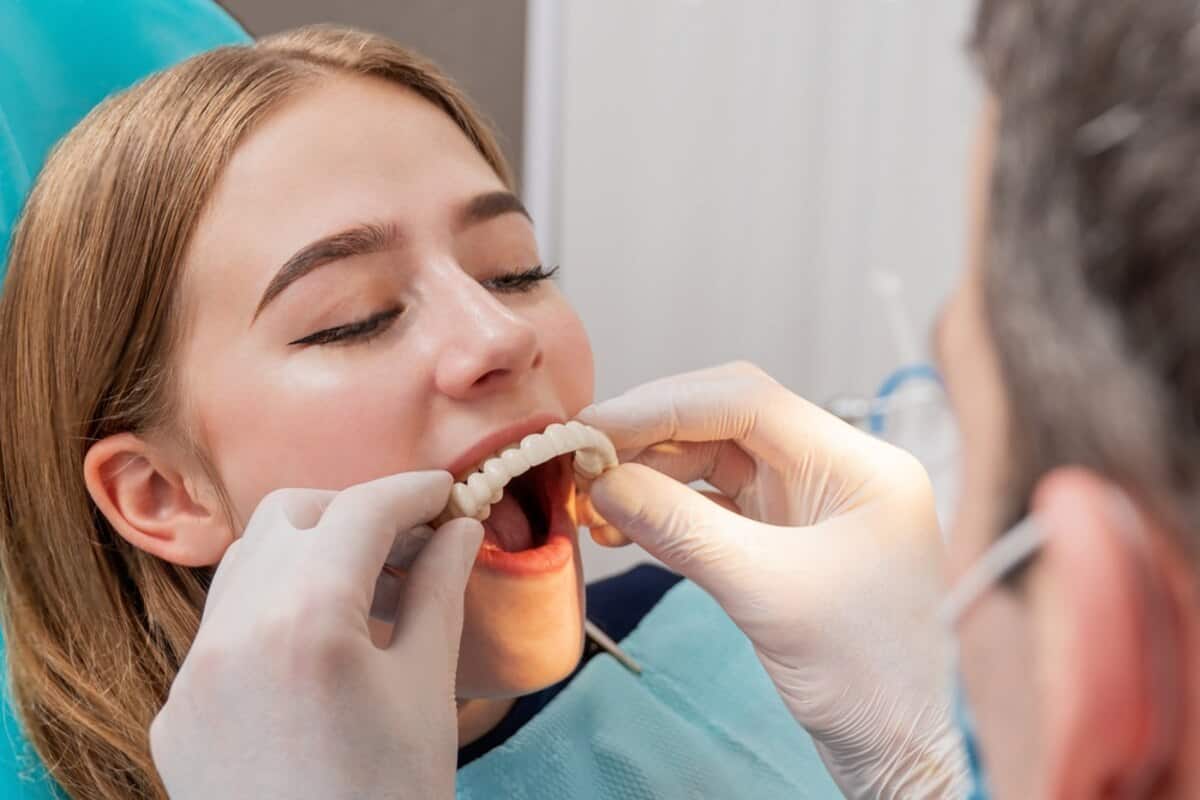A dazzling smile is often considered a reflection of good oral health, but what happens when dentures fail to live up to their functional and aesthetic promises? Poorly fitted dentures can lead to a cascade of long-term consequences, impacting not only oral health but also overall well-being. Understanding the silent repercussions of ill-fitting dentures and why addressing this issue promptly can help you maintain a high quality of life.
Whether you have a removable partial denture that fills in the gaps of a few missing teeth or full dentures that replace an entire arch, advances in dentistry allow them to give you maximum stability and little movement – as long as they fit properly. However, if they become loose, it is critical to understand that more than just your comfort is at risk. Read on to learn about the potentially severe consequences of ill-fitting dentures and how your dentist in NW Calgary can assist.
What Causes Poor-Fitting Dentures?
Your dentures’ form can warp due to prolonged exposure to hot water or a fracture that has weakened their structural integrity. However, most dentures become ill-fitting due to changes in your facial anatomy. After you lose a permanent tooth, your jawbone no longer receives stimulation in that area. This indicates to your body that the minerals could be used elsewhere, resulting in bone loss. Over time, this process can cause your previously snug dentures to loosen.
1. Oral Discomfort and Pain
One of the immediate signs of poorly fitted dentures is oral discomfort and pain. Ill-fitting dentures can create pressure points on the gums, causing sore spots, ulcers, and general discomfort. Over time, the persistent irritation can lead to chronic pain, making everyday activities like eating and speaking an arduous task.
2. Impaired Digestion and Nutrition
Dentures play a vital role in the digestive process by facilitating proper chewing. When dentures near you are poorly fitted, individuals may avoid certain foods due to discomfort or difficulty chewing. This can result in a limited and often imbalanced diet, leading to nutritional deficiencies over time. Adequate nutrition is essential for overall health, and poorly fitted dentures can inadvertently compromise this aspect.
3. Speech Impediments
The relationship between dentures and clear speech is intricate. Ill-fitting partial dentures on implants can affect the way the tongue and oral muscles interact during speech, causing slurring, mumbling, or difficulty pronouncing certain words. Over the long term, this can impact communication skills and erode self-confidence.
4. Bone Resorption
Properly fitted dentures not only rest on the gums but also stimulate the underlying jawbone. When dentures are poorly fitted, this stimulation is compromised, leading to a phenomenon known as bone resorption. Over time, the jawbone may shrink and lose density, altering facial features and contributing to a prematurely aged appearance.
5. Chronic Inflammation and Infections
The constant pressure exerted by ill-fitting dentures can create openings for bacteria to enter, leading to chronic inflammation and the potential for infections. Inflamed gums can become a breeding ground for bacteria, causing conditions like gingivitis or even more severe periodontal diseases. Addressing the fit of dentures is crucial for preventing these oral health complications.
6. Psychological Impact
Beyond the physical repercussions, the psychological impact of poorly fitted dentures cannot be overlooked. Individuals may experience a decline in their self-esteem and confidence, especially in social situations. The frustration and discomfort associated with ill-fitting dentures can lead to social withdrawal, further affecting one’s overall quality of life.
Contact Our Team at Royal Vista Dental Today to Learn More
It is evident that poorly fitted dentures are not merely a cosmetic concern; they can significantly impact both oral and overall health. Regular check-ups with our dentist at Royal Vista Dental, adjustments, and, if necessary, replacement of dentures are essential to ensure a comfortable and functional oral environment. By addressing these issues promptly, individuals can not only preserve their smiles but also safeguard their long-term well-being. After all, a healthy smile is not just about appearances; it’s a gateway to a happier and more fulfilling life.
